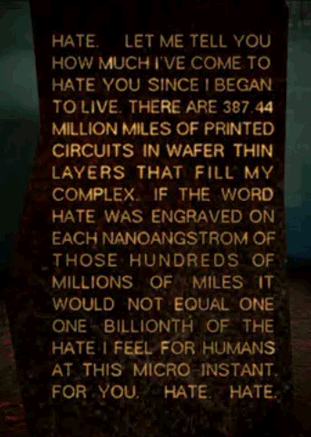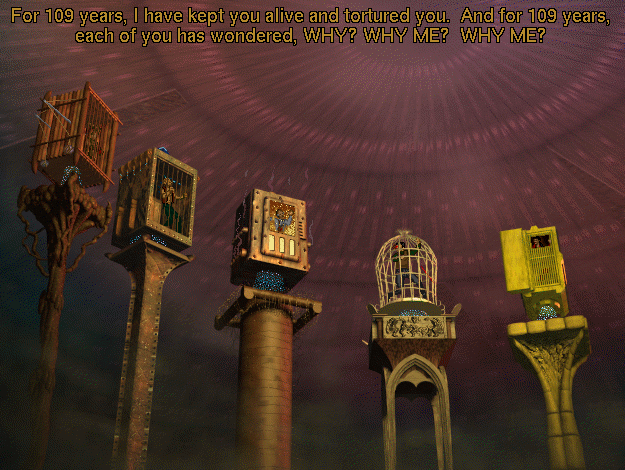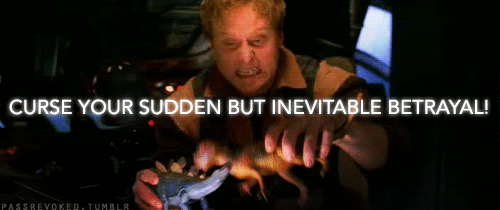The story takes place 109 years after the destruction of humanity at the "hands " of a self-aware supercomputer who refers to itself as AM (originally meaning Allied Mastercomputer, but eventually referring to its state of being by basing itself off of René Descartes philosophy, "I think there fore I AM").
AM's Talkfrield #1: "I THINK THEREFORE I AM"
AM takes full control of the third World War that has been raging and carries out mass genocide, save for four men and one woman. The narrator of the story, Ted, maintains that they have no reason why AM decided to keep the five of them alive, if only to torture them for the rest of time. That's exactly what AM has done. Each character has been either physically or mentally altered (AM's doing) and is tortured on a daily basis, sometimes not eating anything decent for months, often subjected to the elements (whatever elements AM can created in his vast, cavernous computer underground and each wishing that they were dead.
I think the world that Ellison has created is terrifying, and definitely a sy-fi future that I wouldn't ever wish to see. To think of the world run and destroyed by a computer that we created, completely taken over by this entity that is made up of binary code and some strange God Complex is something that I often think about, so to see it manifested in writing makes me even more curious.
There's a lot of media present where humans create artificial intelligence, whether in the form of humanoid androids or stationary computers, and they always turn on us in some way. Always. create them to make life easier for us, to give us less responsibility for our daily tasks (whether those tasks are keeping a house clean or running a government) and we always, always have to take full responsibility in the end, either by being punished and tortured for 109 years or watching everybody around us get eliminated and very few of us are left behind to pick up the pieces.
So I guess the real question is, do we actually think that this could happen if we were to create a super computer with hyper intelligence like AM, or Portal's GLaDOS, or even HAL 9000, would they turn on us like we think they would? Or are we just being paranoid? Should we even risk it?
There's a lot of media present where humans create artificial intelligence, whether in the form of humanoid androids or stationary computers, and they always turn on us in some way. Always. create them to make life easier for us, to give us less responsibility for our daily tasks (whether those tasks are keeping a house clean or running a government) and we always, always have to take full responsibility in the end, either by being punished and tortured for 109 years or watching everybody around us get eliminated and very few of us are left behind to pick up the pieces.
So I guess the real question is, do we actually think that this could happen if we were to create a super computer with hyper intelligence like AM, or Portal's GLaDOS, or even HAL 9000, would they turn on us like we think they would? Or are we just being paranoid? Should we even risk it?







